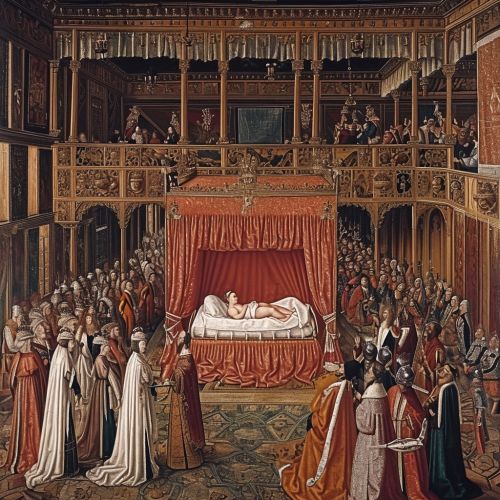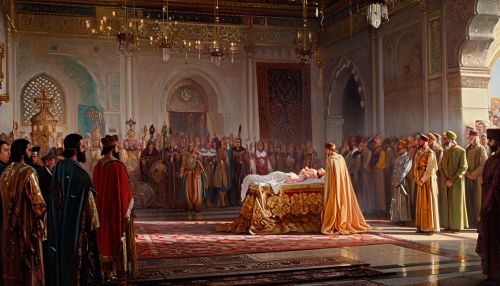Sun King
Early Life
Louis XIV, known as the "Sun King", was born on September 5, 1638, in the royal palace at Saint-Germain-en-Laye. He was the son of Louis XIII and his Spanish queen, Anne of Austria. He was named Louis Dieudonné (Louis the God-given) and bore the traditional title of French heirs apparent: Dauphin.


Ascension to the Throne
Louis ascended to the throne on May 14, 1643, upon the death of his father. As he was only four years old at the time, his mother, Anne of Austria, served as regent, assisted by Louis XIII's chief minister, Cardinal Jules Mazarin. During these early years, France was governed by a series of regents who wielded the royal power while Louis was still too young to do so himself.
Personal Rule and Centralization of Power
In 1661, following the death of his chief minister Mazarin, Louis decided to rule without a prime minister. He aimed to control the nobility and institutions such as the Church and the judiciary. He also intended to improve France's international standing, which he did through a series of wars beginning in 1667.
Wars of Louis XIV
Louis XIV engaged in several wars throughout his reign. The War of Devolution (1667-1668), the Franco-Dutch War (1672-1678), the Nine Years' War (1688-1697), and the War of the Spanish Succession (1701-1714) were among the most significant. These wars, while costly, expanded French territory and were central to Louis's aim of establishing clear and defensible borders for France.
Patronage of the Arts
Louis XIV was a great patron of the arts. He commissioned numerous works of art and architecture, including the expansion of the Palace of Versailles. He also supported the work of some of the most famous artists of his time, including painter Charles Le Brun and playwright Molière.
Death and Legacy
Louis XIV died on September 1, 1715, four days shy of his 77th birthday. His reign of 72 years and 110 days is the longest recorded of any monarch of a sovereign country in European history. Louis XIV's legacy is a mixed one. He is often credited with having brought absolute monarchy to its peak, establishing a glittering court at Versailles and leading France through its most dominant period in international politics. However, his wars were costly and the final years of his reign were marked by economic difficulties and religious persecution.
